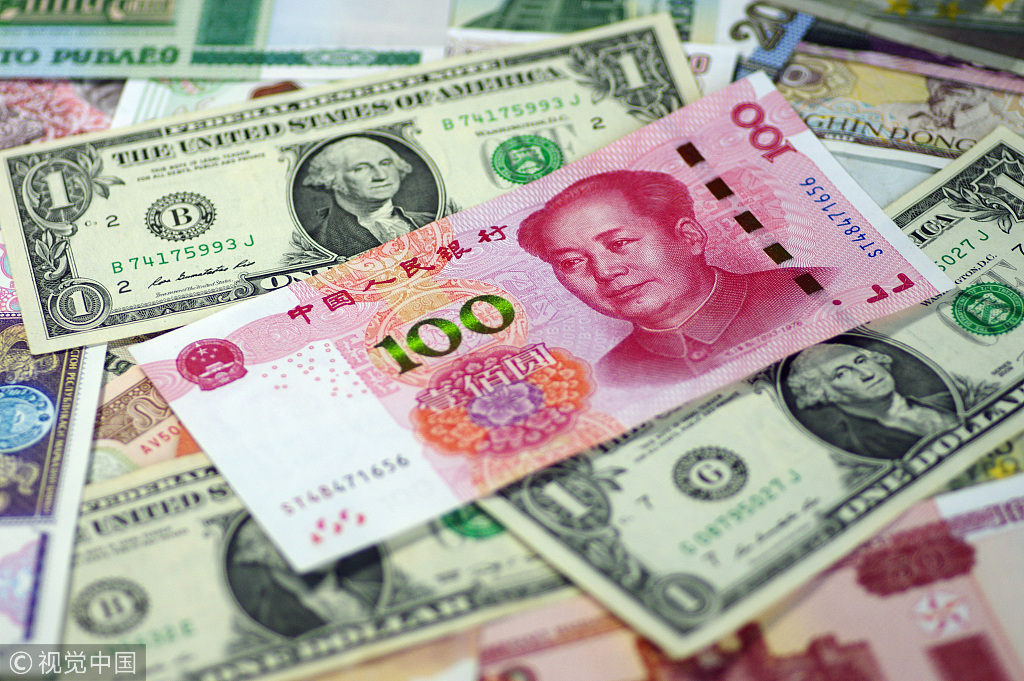Manipulator label criticized
By Scott Reeves in New York | China Daily Global | Updated: 2019-08-07 14:19

Ex-US Treasury head says department's credibility 'damaged' by accusing China of manipulating yuan
Former US Treasury Secretary Lawrence Summers on Tuesday criticized the Trump administration's decision to name China a currency manipulator, and said Treasury Secretary Steven Mnuchin has "damaged his credibility and that of his office'' by doing so.
In an op-ed article published in The Washington Post, Summers said:
"By labeling as Chinese currency manipulation an exchange-rate move that was obviously a natural response to his boss's policies, the secretary has damaged his credibility and that of his office.
"It will be harder now in the next difficult financial moment for Treasury Department pronouncements to be credited by market participants. Having seen the United States label China a manipulator, the world will wonder whether and how the United States will get China to change its exchange- rate policies," Summers wrote. "If Chinese policies do not change, we will have only demonstrated our impotence to China and the world. Why is that desirable?''
He ended the article by saying: "There is a final problem with the Treasury Department's manipulation claims. ... We have only limited capacity to shape Chinese behavior. Should we not focus on areas where our position is clearly right and the stakes are high rather than areas where our claims are dubious and prosecuting them damages our economy?''
And in an interview with Bloomberg Television on Tuesday, Summers said, "I don't think there was much justification" in the Treasury's manipulator decision. "When you are propping up your currency, not running a trade surplus, you're not manipulating the currency on any definition that is understood and accepted in the financial community."
He said that China has been preventing its currency from sinking rather than pressing it lower.
Summers served as Treasury secretary in the Bill Clinton administration and as an economic adviser to former president Barack Obama.
Daniel Ikenson, director of the Cato Institute's Center for Trade Policy Studies in Washington, tweeted: "The Chinese did not devalue their currency. The yuan has been depreciating because of the tariffs and it is no longer tenable for China to continue to prop up the yuan. There is no manipulation."
Last week, Trump said he would impose a 10 percent tariff on an additional $300 billion of Chinese goods starting Sept 1.
In response, China's central bank allowed the yuan to fall to a low of 7-to-1 against the dollar on Monday. Allowing the yuan to fall reduces the relative price for Chinese imports and makes US products comparatively more expensive.
Trump called the action "currency manipulation" and said it was an attempt to steal US jobs and depress wages. The Treasury Department designated China as a currency manipulator, but the US can't seek formal penalties until it attempts to strike a deal with China.
The major stock indexes - Dow Jones Industrial Average, Nasdaq Composite and S&P 500 - closed up more than 1 percent each Tuesday.
After Monday's selloff, the biggest of the year, Tuesday's rebound of 312 points put the Dow at 26,023.
On Monday, the Dow lost 767.27 points, or 2.9 percent, after US President Donald Trump called China a currency manipulator.
"There is more uncertainty in the global environment," Usha Haley, the W. Frank Barton Distinguished Chair in International Business and a professor of management at Wichita State University, told China Daily. "It does not contribute to planning or investment in the global economy and doesn't benefit China or the US. We're in uncharted territory."
"Most investors and traders do not find meaningful the designation of currency manipulator and most believe it is unlikely to foster successful negotiations," Andrew Karolyi, a finance professor at Cornell University, told China Daily. "Fluctuations in the yuan continue to reflect market supply and demand pressures and have for several years. I would not rule out a US-China trade deal before the end of 2019 or early 2020. There are incentives in both countries to stabilize trade flows and ease the burden of trade policy uncertainty."
But Trump may be able to use the currency-manipulation charge to his advantage, one expert said.
"Unfortunately, the declaration that China is a currency manipulator can be used by the president as a reason to take further unilateral actions against China," Steve Charles Kyle, an economics professor at Cornell University, told China Daily. "It is clearly bad news for both the USA and China. The USA will see higher prices as tariffs take effect, and China will see fewer exports as the US buys less and also as production moves elsewhere."
With equity markets roiled and supply chains disrupted, Goldman Sachs now expects the Fed to cut interest rates by at least a quarter- point in September and October.
Trump has frequently called for more cuts in the federal funds rate, which has a target of 2-2.25 percent.
If inflation is close to the Fed's 2 percent target in December, Goldman Sachs believes rate cuts will stop.
Jan Hatzius, an analyst at Goldman Sachs, said he doesn't expect a trade deal to be reached before the November 2020 election.
"While we had previously assumed that President Trump would see making a deal as more advantageous to his 2020 re-election prospects, we are now less confident that this is his view," Hatzius said in a note to investors.
Nancy Kong contributed to this story.
























